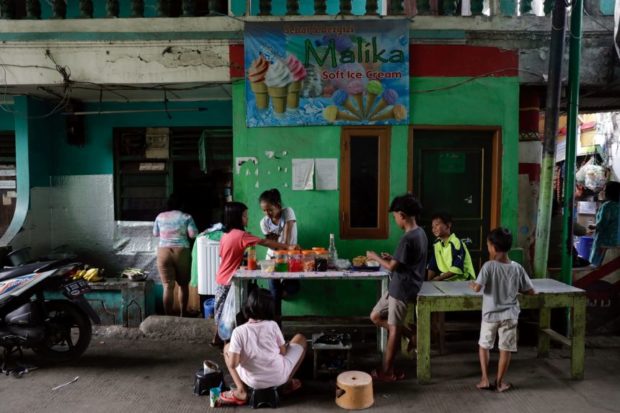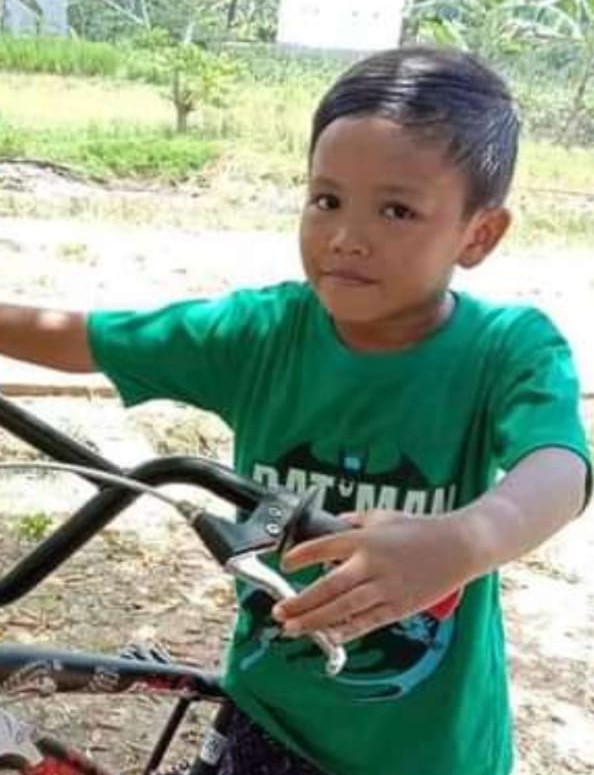‘I still can’t believe my parents died’: Rising number of orphans as Indonesia battles COVID-19

The number of orphaned children in Indonesia is rising fast as the country continues to record among the highest daily fatality figures from Covid-19 in the world. REUTERS FILE PHOTO
JAKARTA — Eight-year-old Alviano Dava Raharjo knew that his parents had been admitted to hospital in West Kutai, East Kalimantan, but he was puzzled why they had not come home yet.
“‘Why has Mum not returned home, Grandpa?’ Vino asked me,” his maternal grandfather Yatin, who goes by one name, told The Straits Times, using the boy’s nickname as he recalled their phone conversation in mid-July.
Unknown to Alviano then, his 32-year old mother Lina Safitri, who was five months pregnant, had just died of Covid-19. His father, meatball vendor Kino Raharjo, 32, died the next day and was buried near his wife.
The number of orphaned children in Indonesia like Alviano is rising fast as the country continues to record among the highest daily fatality figures from Covid-19 in the world.
The death toll was 1,588 on Saturday (Aug 7), bringing total fatalities to 105,598 since the pandemic began. Over 3.6 million people have been infected so far.
Article continues after this advertisementSocial Affairs Minister Tri Rismaharini said on Thursday that at least 11,045 children nationwide had lost one or both parents to the coronavirus as at July 20.
Article continues after this advertisementMr Tata Sudrajat, deputy chief of program impact and policy at Save the Children Indonesia, estimated that, based on official fatality data as at Tuesday, at least 15,229 children have been orphaned from the coronavirus, but noted the figure could be higher.
Some of these children can rely on relatives or extended family to take care of them. Others are less fortunate and are left without any means to clothe, feed or educate themselves.
While there are state-offered solutions such as adoption, foster care and orphanages, experts say family-based care, for example by the child’s grandparents, remains the best option.
“(Sending kids to orphanages) should be the last resort, as in our alternative care framework, we must try to engage the closest families first,” Mr Tata told ST.
He noted that these children suffered emotional and psychological effects from their parents’ death, including feelings of loss and grief, and this is made worse when they are separated from or abandoned by family members.
Mr Nahar, a senior official in charge of child protection at the Women’s Empowerment and Child Protection Ministry, shared Mr Tata’s view.
“In Indonesia, family ties are quite strong. We believe children can be nurtured by their large extended families,” he said.
In East Java, where more than 5,400 children were orphaned by the pandemic, the women’s empowerment, child protection and population agency seeks to offer them psychological support through counseling. It also plans to hold basic entrepreneurship training, for example on how to produce snacks or make soap, to prepare those aged 15 to 17 for work.
“We’ll provide the support because we are worried about the negative impact if they are left on their own,” the agency’s chief, Dr Andriyanto, told ST.
He cited concerns that these children, if neglected, could fall prey to drug abuse, child marriage, crime or radicalism.
Fortunately for Alviano, he continues to grow up surrounded by family.

Eight-year-old Alviano Dava Raharjo with his bicycle at his old home in West Kutai, East Kalimantan. Credit: Yatin via The Straits Times/Asia News Network
He now lives with Mr Yatin and other relatives in Sragen, Central Java, and enjoys playing football with the other children in his new neighborhood.
But he is still getting over his parents’ deaths.
“‘Grandpa, I still can’t believe my parents died,’ he’s told me twice,” Mr Yatin said.
He noted that Alviano still has ambitions to become a pilot.
“He once said that if he had a lot of money, he would buy us mobile phones. God willing, he can achieve his dream,” he said.